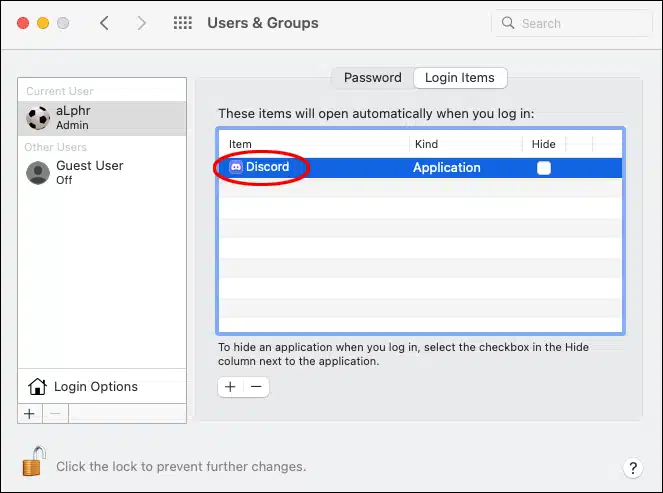The world of politics is where decisions that shape our society and influence our lives are made. If you’ve ever been inspired to make a positive impact on your community or nation, a career in politics might be the path for you.
Becoming a politician is a multifaceted journey that requires passion, dedication, and an understanding of the political landscape.
In this article, we’ll explore the steps and insights on how to become a politician, from getting involved at the grassroots level to ultimately running for and serving in political office.
Table of contents
- How to Become a Politician?
- Step 1: Education and Knowledge
- Step 2: Get Involved at the Grassroots Level
- Step 3: Develop a Clear Vision and Message
- Step 4: Build a Network
- Step 5: Choose Your Level of Office
- Step 6: Fundraise and Campaign
- Step 7: Run for Office
- Step 8: Serve in Office
- Step 9: Stay Informed and Engaged
- Step 10: Seek Re-election or Advance
- What are the Different Levels of Political Office to Consider?
- How do I Run a Successful Political Campaign?
- Conclusion
- Frequently Asked Questions
- References
- Recommendations
How to Become a Politician?
Becoming a politician is a multi-step journey that requires commitment, dedication, and a deep understanding of the political landscape. Here is a step-by-step guide on how to become a politician:
Step 1: Education and Knowledge
Obtain a Strong Educational Foundation: While there is no specific degree required to become a politician, a bachelor’s or advanced degree in fields such as political science, public policy, law, or related disciplines can provide you with valuable knowledge about government and politics.
Step 2: Get Involved at the Grassroots Level
Start Small: Begin by getting involved in local politics. Join community organizations, volunteer for political campaigns, or participate in local government meetings to gain experience and build a network.
Volunteer: Offer your time and skills to political campaigns or non-profit organizations to gain experience in campaign management, canvassing, fundraising, and other crucial political activities.
Step 3: Develop a Clear Vision and Message
Define Your Platform: Identify the issues and causes you are passionate about and create a clear and compelling political platform that reflects your values and goals.
Effective Communication: Develop strong communication skills to convey your message effectively. This includes public speaking, debate, and writing skills.
You should read: What Age Do You Graduate High School?
Step 4: Build a Network
Connect with Community Leaders: Build relationships with community leaders, activists, and political figures who can provide guidance and support.
Attend Political Events: Attend local and regional political events, town hall meetings, and political rallies to connect with constituents and fellow politicians.
Step 5: Choose Your Level of Office
Start Locally: Consider running for local offices like city council, school board, or a municipal position to gain experience in public service.
State and National Offices: As you gain experience, you can aspire to run for state-level positions like state legislator or governor, or even national offices like a member of Congress or senator.
Step 6: Fundraise and Campaign
Fundraising: Running for office requires funding for campaign materials, advertising, and events. Develop a fundraising strategy and connect with potential donors who share your values and vision.
Campaign Strategy: Create a comprehensive campaign strategy that includes grassroots organizing, door-knocking, engaging with voters, and a strong online presence. Ensure your campaign materials and message align with your platform.
Check out this related content: Which Group is a Primary Supporter of Hunter Education?
Step 7: Run for Office
File Candidacy: Follow the specific legal requirements and deadlines for filing your candidacy with the appropriate election authority.
Campaign Effectively: Launch your campaign, engage with constituents, and stay true to your platform and principles.
Step 8: Serve in Office
If you win the election, be prepared to take on the responsibilities of your elected position. Uphold your campaign promises, represent your constituents, and work towards the betterment of your community or region.
Step 9: Stay Informed and Engaged
Continue to educate yourself on relevant issues, stay engaged with your community, and adapt to the changing political landscape.
Step 10: Seek Re-election or Advance
If you’re successful in your initial term, consider seeking re-election, advancing to higher political offices, or pursuing leadership positions within your political party.
Becoming a politician is a rewarding and challenging path that involves continuous learning, networking, and commitment to public service. Whether you start at the local level or aim for national positions, your journey can make a significant impact on your community and the broader political landscape.
Check out this related content: How Tall is Trippie Redd? Everything About the Rapper
What are the Different Levels of Political Office to Consider?
There are various levels of political office to consider, each with its own set of responsibilities and opportunities for public service. The level of office you choose depends on your experience, interests, and long-term goals. Here are the different levels of political office:
Local Offices:
- City Council: Council members are responsible for local laws, regulations, and city budgets.
- School Board: School board members oversee local public education policies and budgets.
- County or Parish Government: County commissioners, supervisors, or council members handle local governance issues, including public services, land use, and zoning.
State Offices:
- State Legislature: State representatives and senators create and pass state laws and budgets.
- Governor: The governor is the chief executive officer of the state, responsible for implementing and enforcing state laws and managing the state’s budget.
- Attorney General: The attorney general provides legal counsel for the state and may handle legal actions on behalf of the state.
- Secretary of State: This office manages state elections, business registrations, and maintains state records.
- State Treasurer: State treasurers oversee the state’s finances, including investments and debt management.
Federal Offices:
- U.S. House of Representatives: Representatives serve in the lower house of Congress, representing specific congressional districts within their state.
- U.S. Senate: Senators serve in the upper house of Congress and represent the entire state.
- President of the United States: The president is the head of the executive branch and serves as the nation’s leader and commander-in-chief.
- Cabinet Positions: Members of the presidential cabinet serve as advisors to the president and head various federal departments (e.g., Secretary of Defense, Secretary of Health and Human Services).
Other Offices:
- Judgeships: Judges at various levels, from local courts to the U.S. Supreme Court, interpret and apply the law.
- Mayors and City Managers: Mayors are the elected leaders of cities, while city managers are responsible for city administration.
- Special Districts: Special districts handle specific functions, such as water management or transit, and have their own boards or councils.
International Offices:
Some individuals may aspire to international political roles, such as diplomats or ambassadors, representing their country in foreign relations.
You should read: How Tall is Jack Skellington? All the Facts and Details
How do I Run a Successful Political Campaign?
Running a successful political campaign is a complex endeavor that requires careful planning, a dedicated team, and effective strategies. Here are some key steps to help you run a successful political campaign:
Define your goals and strategy:
Clearly define your campaign goals, whether they involve winning an election, advancing specific policies, or raising awareness about an issue. Develop a comprehensive strategy that outlines how you’ll achieve these goals.
Assemble a Campaign Team:
Build a dedicated team that includes individuals with expertise in areas like campaign management, communication, fundraising, and data analysis. Your team should share your vision and be committed to your campaign’s success.
Fundraising:
Develop a fundraising strategy to secure the financial resources necessary for your campaign. This may involve hosting fundraising events, soliciting donations from supporters, and exploring potential grants.
Grassroots Organizing:
Mobilize your supporters and volunteers to engage in grassroots organizing efforts. This includes door-knocking, phone banking, and attending community events to build a strong presence in your constituency.
Develop a Strong Message:
Craft a clear, compelling, and consistent message that conveys your platform and resonates with your target audience. Ensure your message addresses the issues most important to your constituents.
Public Speaking and Debate Skills:
Hone your public speaking and debate skills. Effective communication is crucial in conveying your message and connecting with voters. Practice delivering speeches, answering tough questions, and participating in debates.
Door-Knocking and Canvassing:
Door-knocking and canvassing efforts allow you to personally engage with voters, answer their questions, and address their concerns.
Ad Campaigns:
Consider using advertising campaigns, such as TV, radio, print, and digital ads, to reach a broader audience. Ensure your advertisements align with your campaign message and target specific demographics.
Also check out this content: 26 Legitimate Ways to Get a Costco Student Membership for Free
Conclusion
Becoming a politician is a rewarding and impactful journey that can lead to making a difference in your community or even at the national level. While the path to becoming a politician can be challenging, it is accessible to individuals from various backgrounds who are willing to commit to public service and engage in the political process.
Whether you start by volunteering, work your way up through local offices, or aim for higher levels of government, the key is to stay dedicated to your principles, connect with your constituents, and be prepared for the responsibilities of public office.
Frequently Asked Questions
Becoming a politician requires a deep commitment to public service, a strong understanding of the political process, effective communication skills, and a genuine desire to represent and serve your community.
Start at the grassroots level by volunteering for political campaigns, participating in community organizations, and attending local government meetings. Building a network and gaining experience in the political field is essential.
While there is no specific educational requirement, having a bachelor’s or advanced degree in fields like political science, public policy, law, or a related discipline can provide valuable knowledge and insights.
You can start by running for local offices like city council or school board and then work your way up to state and national positions, such as state legislator, governor, or member of Congress. The level you choose depends on your experience and goals.
Running a successful campaign involves assembling a team, setting clear goals and messaging, fundraising, and engaging with voters. Effective communication, grassroots organizing, and a compelling platform are crucial for success.
References
- indeed.com– How to Become a Politician
- uopeople.edu– So you want to become a politician- this is how
- wikihow.com– How to Become a Politician
Recommendations
- 26 Legitimate Ways to Get a Costco Student Membership for Free
- What Age Do You Graduate High School?
- Which Group is a Primary Supporter of Hunter Education?
- How Tall is Trippie Redd? Everything About the Rapper
- How Tall is Jack Skellington? All the Facts and Details
- How Big is 5 Inches? 6 Items with Accurate Measurement






